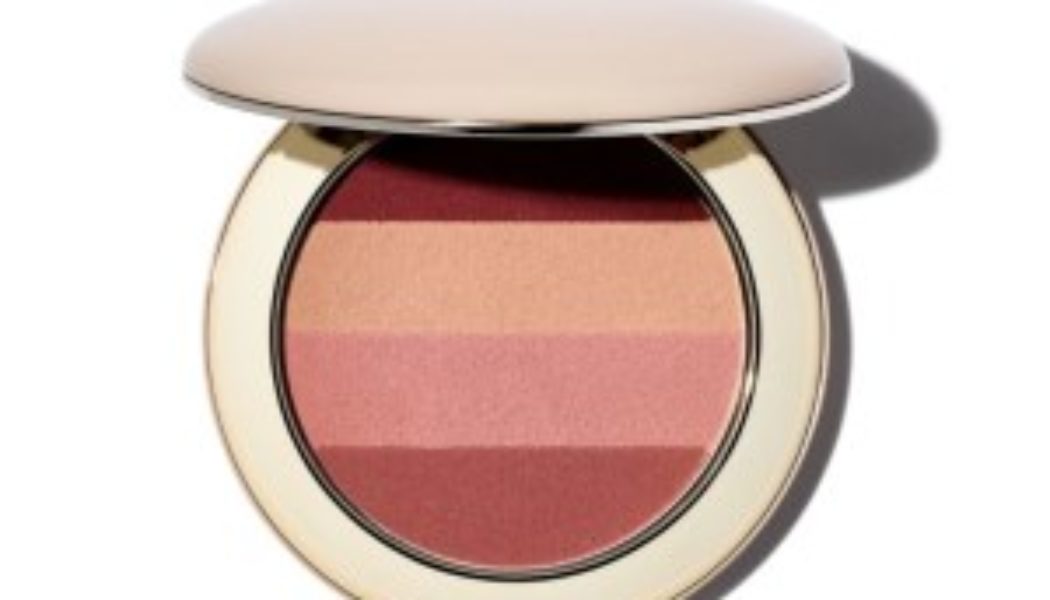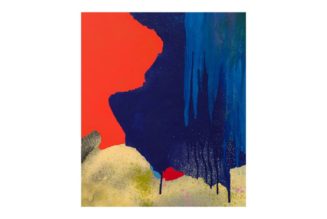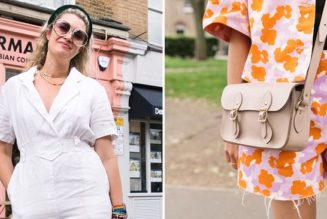For sought-after makeup artist Gucci Westman and seasoned entrepreneur David Neville, taking the long view on building Westman Atelier is bearing fruit in the short term, too.
The husband-and-wife duo behind Westman Atelier have grown Westman Atelier into a business with roughly 100 employees, and retail sales said to match at $100 million in 2023, according to industry sources.
Westman Atelier, which launched in 2018, has taken a considered approach to expansion and a painstaking one to product development, building a powerhouse “clean” luxury brand in the process. That approach has earned the company the 2023 WWD Honor recipient for Best-Performing Beauty Company, Small Cap.
Westman Atelier’s success comes during a wave of makeup-artist led brands, including Bobbi Brown’s Jones Road and Mario Dedivanovic’s Makeup by Mario. Westman and Neville named the line’s product performance and luxury positioning as effective differentiators.
“There’s more of an appetite for this objective that we have and see in our brand,” Westman said. “You can tell that everything takes time, not only for the packaging, but our ethos: the formulas, the system, all the things we’re trying to do, and the fact that it’s skin care-rooted while still performing like makeup that’s full of silicones.”
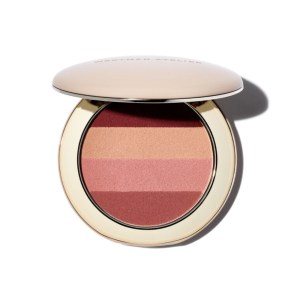
Rather than having a marketing-driven approach to product development, new formulas come from Westman’s own desires. “It’s not based on trends, I’m a real person who wears makeup and I’m busy — I’m a mom and a wife. [The products] are things that I see that I need, and many people feel the same. It’s just easy ways to enhance yourself without a transformation, it’s not complicated.”
That also means that product launches are fewer and further between. Westman, who has worked with a string of celebrities — from Anne Hathaway to Gwyneth Paltrow — said to not expect a slew of foundations, or a cadence of newness in redundant categories.
“When I worked with Lancôme and Revlon, I did seasonal collections a couple times per year. This brand is not about that. It’s a mindset,” Westman said. “It’s what I deem necessary. I don’t ever want to create anything that feels frivolous.”
With that in mind, products are often several years in the making. “The skin activator took the cake,” Westman said, nodding to the product’s five-year development period, which culminated in its launch earlier this year. “We were initially going to make [the packaging] white, and I thought it would be so pretty as a translucent pink. That whole scenario pushed us back probably two years.”
Neville confirmed that the launch has exceeded expectations.
“We’ve executed so well on formula, package, brand, content and assets that we have this interesting trifecta of artistry, luxury and high-performance, clean-formulated products that didn’t exist in the marketplace, and to some extent, still doesn’t,” he said. “The idea of what we call clean luxury is white space within an incredibly saturated landscape.”
Though Westman’s experience lies in makeup, she looked to an adjacent beauty category as a north star.
“We were super inspired by fragrance — the ads, the packaging — the whole concept of fragrance is more timeless and more emotional than makeup,” she said. “We wanted that moment to luxuriate in your routine and make it special.”
The brand’s prices range from $34 for mini products to $750 for a collection of brushes, and it has both department store and specialty distribution in the U.S., including at prestige powerhouse Sephora. Neville contended that the way the brand approaches customers also helps it cut through the noise.
“It has never been more important to be founder-led and to have somebody that speaks passionately about why they do what they do, and how to use the products,” Neville said. “We sit with luxury brands in different environments, whether it’s luxury department stores or specialty retailers like Sephora. There’s a competitive advantage that we have that European luxury brands don’t have: a working founder that is engaging directly with the customer. Those brands rely much more on the brand and the power of brand marketing.”
That strategy extends to social media, where Westman takes a gut-first approach to what she posts. At 330,000 followers on her personal Instagram alone, she appears to be striking a chord.
“At certain times, one thing works really well, and then it doesn’t. You have to be nimble,” Westman said. But some key themes have evergreen appeal to her followers. “Fashion, when I show my rosacea, or when I do makeup tutorials.”
That has been the plan since the brand’s inception. “All of our marketing dollars went to building content around Gucci and educating on the brand philosophy, and educating on the products,” Neville said. “That’s been such a strength of ours. She communicates so well on the brand and on her experience, that that’s been an easy one. It wasn’t overly complicated.”
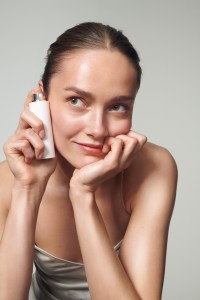
Next up, the brand is looking to expand to more international markets. “We haven’t touched Asia,” Neville said. The business is predominantly in North America, he said, with traction in Europe and an “incredible” business with Mecca Cosmetica in Australia and New Zealand.
“We’ve been quite measured in the way that we’ve expanded our distribution and geographically,” Neville said. “The strategy is to continue in the same vein and to continue to be super focused on product integrity and to be very mindful about all the decisions that we make, whether that’s distribution or whether that’s any other kind of product and brand extensions.”
From a category perspective, that means lipstick. “We still don’t have a lipstick, and that’s the largest makeup category. We do still have some whole categories within makeup that we need to launch,” he said. “We have a lot to focus on, whether that’s our direct-to-consumer business, or the different retail relationships we have globally. That’s a lot for us.”
Skin care has been a boon, and the plans don’t stop with the brand’s debut product. The Skin Care Activator “has way outperformed our expectation in terms of percentage of business, and it’s a good indicator that we have license to continue to build out a skin care offering in an additive way,” Neville said. “We have some launches slated for 2024.”
Those launches will take a similar approach to ingredients. The Skin Activator, for example, has four types of hyaluronic acid, as well as peptides, noni fruit, niacinamide and prickly pear cactus extract.
“I loved the formula and I was interested to see what else we can do with a similar kind of complex,” Westman said. “So yeah, we’re working on some more skin care. Our brand is a true lifestyle brand, it feels that way to me with our collaborations that we’ve done with small, mainly female-founded brands, plus skin care.”
“When you think about the content Gucci does and the feedback we get from customers, it is this intersection of wellness, beauty, fashion and design,” Neville said. “There’s something modern and dynamic about it.”
Neville, who cofounded Rag & Bone, noted that managing beauty inventory — which takes more time and money to develop, but lasts much longer on shelf — is a key differentiator from fashion, but in terms of garnering loyalty, the two sectors are congruent.
“Whether it’s fashion or beauty, regardless of the product category, it’s the brand that speaks to you and ultimately decides if you want to purchase. The fundamentals are the same,” Neville said. “You have to build a compelling brand and a compelling story with compelling product. And when those things align, and you’re in front of the right customer, you’re going to be successful.”
